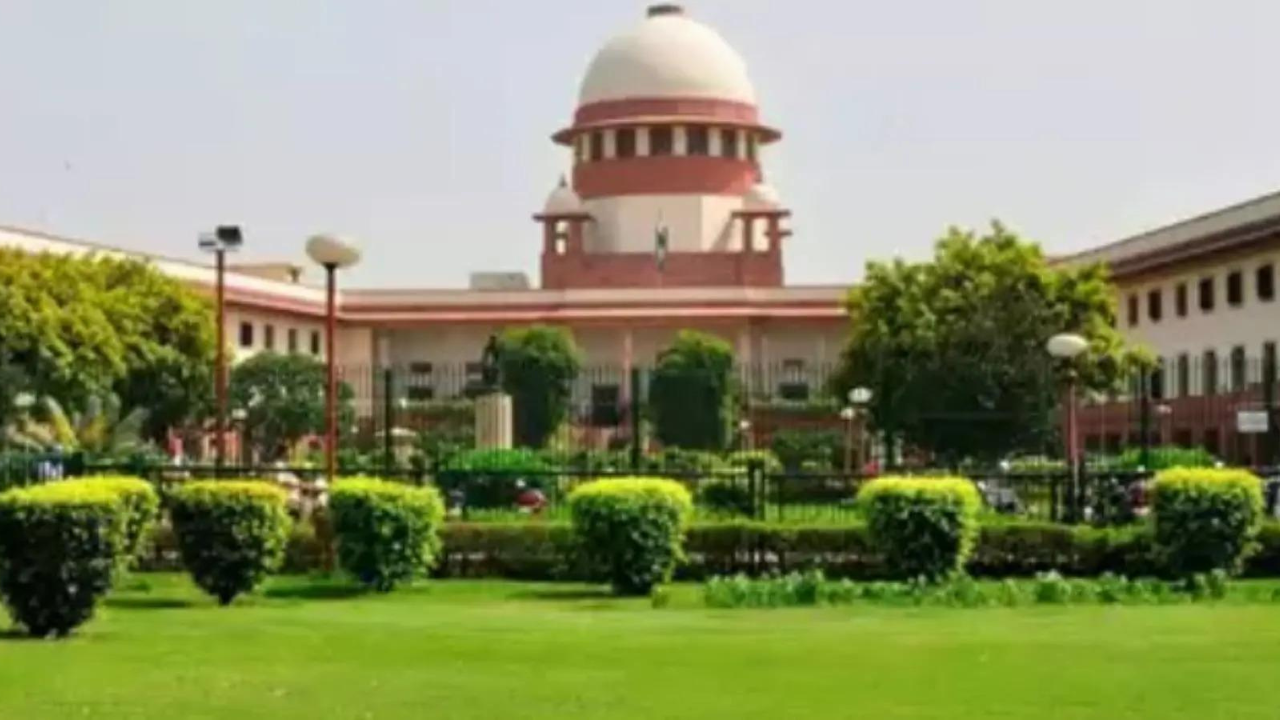MUMBAI: Supreme Court’s vacation bench on Monday stayed till July 15 the remission and premature release from prison permitted by the Bombay HC to convicted gangsterArun Gulab Gawli and barred his exit from custody till then.
The SC bench of Justices Aravind Kumar and Sandeep Mehta issued a notice to Gawli, stating, “There shall be an interim stay of the impugned order, till the next date of hearing.”
Gawli is serving a rigorous life imprisonment sentence after an Aug 2012 conviction for murder of Shiv Sena corporator Kamlakar Jamsandekar in 2007 as well in 2008 and 2009 special cases under Maharashtra Control of Organised Crime Act (MCOCA).The life sentence is life till end of natural life, SC has held time and again. The state, however, has a remission policy in place for lifers.
The state had filed a special leave petition (SLP) seeking to challenge the April 5 judgment of the Nagpur bench of Bombay HC that permitted the gangster’s early release, citing a 2006 state policy for remission, called ‘premature release policy’.
The state, represented by senior counsel Raja Thakare, said the high court order was “ misconceived” as the law provides power to remit a sentence to the govt. SC had in a 1976 ruling said only govt possesses the sole discretion of granting remission to a convict and the state is, thus, arguing now that HC cannot compel govt to release a prisoner.
The high court, in its April order, had given the state four weeks to pass consequential orders for implementation of the remission.
The state’s SLP said Gawli is a ‘hardened criminal-turned-politician’ convicted and sentenced to life imprisonment for his role in a crime syndicate case and has other pending cases against him, including some under the stringent MCOCA. It said that the high court failed to consider the potential impact on society at large before permitting Gawli’s release.
SC vacation bench said since it’s a matter of policy, it requires consideration and, thus, stayed implementation of the HC judgment.
The SC bench of Justices Aravind Kumar and Sandeep Mehta issued a notice to Gawli, stating, “There shall be an interim stay of the impugned order, till the next date of hearing.”
Gawli is serving a rigorous life imprisonment sentence after an Aug 2012 conviction for murder of Shiv Sena corporator Kamlakar Jamsandekar in 2007 as well in 2008 and 2009 special cases under Maharashtra Control of Organised Crime Act (MCOCA).The life sentence is life till end of natural life, SC has held time and again. The state, however, has a remission policy in place for lifers.
The state had filed a special leave petition (SLP) seeking to challenge the April 5 judgment of the Nagpur bench of Bombay HC that permitted the gangster’s early release, citing a 2006 state policy for remission, called ‘premature release policy’.
The state, represented by senior counsel Raja Thakare, said the high court order was “ misconceived” as the law provides power to remit a sentence to the govt. SC had in a 1976 ruling said only govt possesses the sole discretion of granting remission to a convict and the state is, thus, arguing now that HC cannot compel govt to release a prisoner.
The high court, in its April order, had given the state four weeks to pass consequential orders for implementation of the remission.
The state’s SLP said Gawli is a ‘hardened criminal-turned-politician’ convicted and sentenced to life imprisonment for his role in a crime syndicate case and has other pending cases against him, including some under the stringent MCOCA. It said that the high court failed to consider the potential impact on society at large before permitting Gawli’s release.
SC vacation bench said since it’s a matter of policy, it requires consideration and, thus, stayed implementation of the HC judgment.

